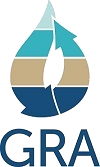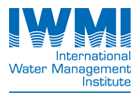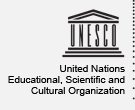Presentations
Barthel, Roland
Presentation Title
Using a Multi-Actor Framework for Simulating the Interaction between Various Actors, Water Supply and Groundwater in Response to Global Change
Institution
Institute of Hydraulic Engineering, University of Stuttgart, Germany
Video
Not Available
Presentation
Profile Picture

Abstract
The aim of GLOWA-Danube (www.glowa-danube.de; financed by the German Ministry of Research and Education) is to provide an integrated approach to predicting changes to the hydrological cycle due to Global Change in the Upper Danube Catchment (UDC), an area with an extent of 77,000 km2 situated in Germany and Austria. GLOWA-Danube considers both the influence of natural changes in the ecosystem, such as climate changes, as well as social changes, e.g. changes in land use as a consequence of farmers? decisions. For that purpose, GLOWA-Danube has developed the coupled simulation system DANUBIA, which is comprised of a total of 17 disciplinary simulation models coupled to each other dynamically during runtime. The UDC is a mountainous, heterogeneous catchment with altitudes between 287 and 4049 m a.s.l., precipitation levels (P) between 650 and >2,000 mm/a, average annual temperature values (T) between -4.8 and +9 °C, and evaporation levels (E) between 0 and 550 mm/a. Taking socio-economic processes into account within such an integrated hydrological simulation system is challenging. Systems that aim at evaluating the impact of climatic change on large spatial and long temporal scales cannot be based on the assumption that infrastructure, economy, demography, agricultural practices and political frameworks remain constant while physical boundary conditions change. Therefore, any meaningful simulation of possible future scenarios needs to allow socio-economic systems to react and adapt to climatic changes. To achieve this, it is necessary to simulate the decision-making processes of the relevant actors in a way which is adequate for the scale under consideration, the catchment-specific management problems under investigation and finally, the availability of data. Here we present a multi-actor approach for representing such human decision processes, the so-called DeepActor framework, which has similarities to agent-based approaches. In the present contribution, we focus on the simulation of decisions made by farming actors (agents) and their consequences on land use, plant ecology and the nitrogen cycle, groundwater quality, groundwater quantity, and finally, water supply. Potential interactions and conflicts with other actors are explained. The DANUBIA and the DeepActor framework will be presented together with the main sub-models they involve. Results are shown for various scenario simulations based on climate scenarios combined with socio-economic scenarios. The scenario definition approach is shown briefly. A stakeholder process initiated by the GLOWA-Project will also be covered.
Figures
None Available
|












